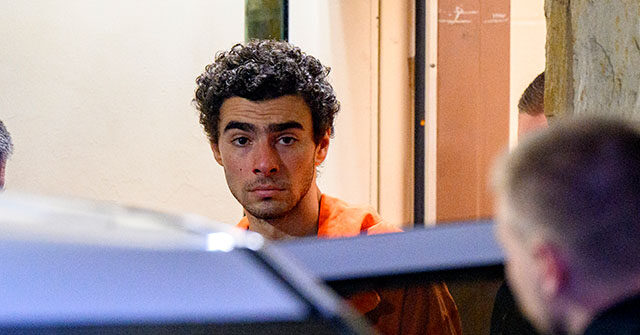In a recent incident discussed across social media platforms, a pro-Democrat Facebook page, known as “The Other 98%,” shared a provocative post addressing public reactions to Luigi Mangione, the alleged murder suspect of UnitedHealthcare CEO Brian Thompson. The post featured notable imagery and a key message aimed at individuals upset over the apparent elevation of Mangione to folk hero status following his arrest. It sarcastically linked Mangione’s situation to that of Kyle Rittenhouse, who garnered considerable controversy and support after being acquitted of charges related to a shooting incident. The page’s post implied that those disgruntled with Mangione’s newfound notoriety should empathize with the emotional responses felt by Democrats regarding the Rittenhouse case.
Luigi Mangione was apprehended at a McDonald’s in Altoona, Pennsylvania, after a public manhunt for the suspect in the murder of Thompson began to unfold. Various media sources, including reports from Breitbart News, highlighted that Mangione had been experiencing significant physical pain, influencing his mental state and potentially prompting his actions. He had undergone back surgery the previous year, and acquaintances noted the extreme discomfort he endured, which led him to make drastic changes in his living conditions for relief. This context paints a portrait of an individual in distress, though it remains unclear how these factors intersect with the alleged crime.
Moreover, Mangione’s case became a topic of fierce public discussion partly due to the existence of a personal manifesto he left behind, in which he expressed criticisms of the American healthcare system. His writings suggest a troubled mind grappling with systemic issues, sparking debate on whether such sentiments should in any way mitigate his alleged actions. The broader implications of this incident and the philosophical questions that arise about societal perceptions of vigilantes, heroes, and victims are essential as the case gains more attention from the media and the public alike.
The fallout from the arrest highlights the polarized views surrounding Mangione, with some applauding him while others vehemently condemn any idolization. At a live taping of Jon Stewart’s Daily Show, the audience reacted negatively when news of Mangione’s capture was announced, suggesting a complex mixture of emotions in the public realm. This volatility mirrors the sentiments experienced during the Rittenhouse trial, where supporters painted him as a defender while others criticized him as a vigilante. The contrasting reactions to both individuals reflect underlying societal divides regarding the definition of heroism, legality, and morality.
Meanwhile, public figures have also weighed in on the controversy. Notably, actor Michael Rapaport took to Instagram to express his disdain for those glamorizing Mangione’s actions. He referred to him in harsh terms, criticizing supporters who have turned him into a symbol of defiance against perceived injustices. Rapaport’s comments underscore the deep-seated frustration toward the phenomenon of individuals gaining hero status through violent actions, raising broader ethical questions about societal influence on public perception and the consequences of idolization.
In conclusion, the discourse surrounding Luigi Mangione and his connection to the healthcare system, public perception, and militant heroism unveils a complex interplay of emotions and moral queries. The juxtaposition of Mangione’s history of suffering with the nature of his alleged crime echoes a narrative seen in other high-profile cases, encouraging introspection about our societal standards regarding justice and heroism. As discussions continue, the situation reveals the need for a more nuanced understanding of people’s motivations, the impact of personal grievances on actions, and the implications of turning individuals into symbols in the face of tragedy.

